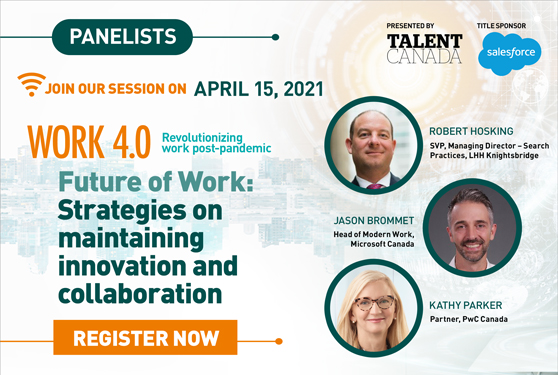

Columns/Blogs
Features
Culture
Future of Work
Working Remotely
Protecting a unique company culture in a fractured world
By Mina Movasseli
 When companies lose their top talent, it is often due to the employee feeling like their ideas were not respected. (FreePik.com)
When companies lose their top talent, it is often due to the employee feeling like their ideas were not respected. (FreePik.com) What happens to the companies that were inspired by the Google culture during a time where remote work has become the new norm?
You know — that culture that promotes ping-pong tables, beers at work, and free lunches, gathering within it a pool of people who want to work in an environment that is also focused on collaboration and innovation.
What happens when that environment is focused more on physical experiences and materials to bring people together?
Well, evidently, it becomes harder to replicate virtually.
Sometimes it is in that physical experience of playing a game of ping pong, sitting in the lounge area, or having a conversation at the coffee station that gives people new perspectives. And where many people end up bouncing ideas off of one another.
This relates to another piece of the puzzle — the “mission and vision” of the company.
This is at the heart of most companies and it is what attracts new candidates and current employees to feel like they are a part of something bigger.
Maintaining innovation
The question now is: how do we continue pushing forward innovation and collaboration within a remote environment?
If we look to human psychology — specifically at Maslow’s “Hierarchy of Needs” theory — it shows us that once humans have certain needs met starting with food, water and shelter, then they want to have their safety and security needs met. Once those are satisfied, they want to feel like they belong through relationships, including with peers and friends.
Next, and below the top of this ladder, is a person’s “self-esteem needs,” which indicates that humans can be motivated through feelings of respect by others, respect of others, confidence, achievement, status and recognition.
This can help us understand how a new company culture can be born, which is vital to attracting new employees and retaining old ones.
How? By first creating a safe and secure space, and then making sure people have good working relationships.
This isn’t just putting locks on doors, but rather creating a level of trust within the company and individual teams. This allows people to feel comfortable and access the part of their brain that is more creative.
Next, we can move towards motivating employees by increasing their level of self-esteem. In this part of Maslow’s hierarchy, we can see that if teams are able to understand each other’s views and respectfully debate, then confidence is built — leading to a willingness to want to share new ideas.
This is crucial because when companies lose their top talent, it is often due to the employee feeling like their ideas were not respected by others or simply silenced and not given the space to think outside the box.
Five ways to pivot your culture
These motivational needs can be seen as opposing the current ways of attracting employees with fancy game rooms and office snacks.
But from the skeleton of that model, we can see that those able to make it work understand that humans like to be reinforced in order to continue doing another task.
So, it might seem that they are giving them free lunches for their work, but the leadership of the company is also making sure their employees are reinforced with words of appreciation. Time is given to them to acknowledge their work and
effort.
Below are five methods to make virtual cultures innovative and collaborative at their core:
- Personality profiling (by a professional consultant): this helps identify skill sets and potential, then builds upon it. For example, Myers-Briggs, 16 Personality Factors, OCEAN, DiSC.
- External understanding: comprehending any external forces in an employee’s life that need to be worked around, such as a sick family member or picking up a child at school.
- Access to fun workshops: dedicated to building the confidence of the employee through forums such as storytelling workshops.
- Company therapist: focused on helping guide the employee to better understand their thoughts and actions.
- Company coach: techniques taught to help workers learn how to speak up, think more creatively, relax their mind and feel happier in their life.
This approach gets to the core of what is needed as humans, proving that you don’t need expensive ways to create a good culture and help your team be innovative.
If your staff trust what the company is doing and they feel seen, heard and understood, then they will give their time, energy and knowledge to be part of the cause.
 Mina Movasseli is a behavioral scientist and founder of The Mindful Blueprint in Toronto.
Mina Movasseli is a behavioral scientist and founder of The Mindful Blueprint in Toronto.
Print this page
